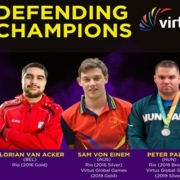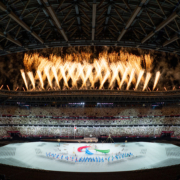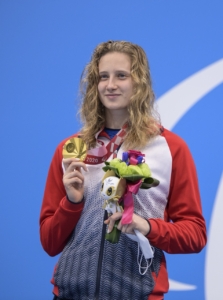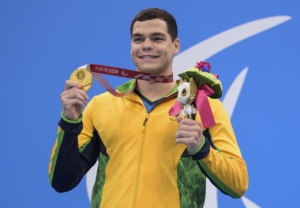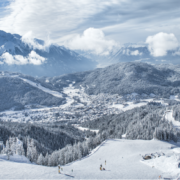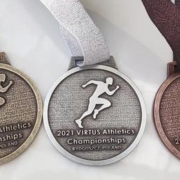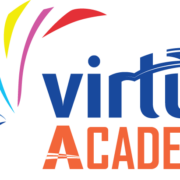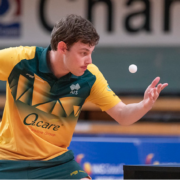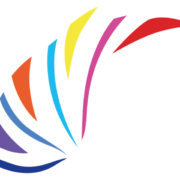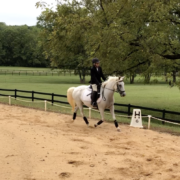Australian Table Tennis player Sam von Einem is one of the famous faces at Virtus and at the Paralympic Games. He’s won many medals at international and national Para Table Tennis events with his biggest achievement to date being when he grabbed the silver medal at Rio 2016 Paralympic Games.
Mousumi Mazumdar, Virtus’s Communications Intern caught up with him to talk about his athletic career to date and future aspirations.
Can you tell us about your background? Like how and why you started playing?
Sam: I started to play Table Tennis when I was residing in United Arab Emirates back in 2003. When my Family moved to the UAE, the weather there was very warm for a lot of the year and too warm to play my usual sports of Tennis and Soccer at the time. At home we had a Table Tennis table and at the school also they were teaching table tennis to us so I started learning and playing the game a lot with family and friends from school.
I first participated in a Table Tennis tournament when I was 11 years old after I moved back home from the UAE. I played in mainstream events around South Australia. I competed in my first International Para Table Tennis tournament when I was 18 years old in Hungary and never looked back.
Who are the people who helped you get into your sport?
Sam: The people who support me are my family (parents and my brother) and the club coach. The coach at the time helped me in my training. My mom helped me with starting the process in getting classified in para sport which give me the opportunity in playing in a Paralympic Games
What does being able to compete in sport events mean to you?
Sam: I’ve always had a big passion for sports and the opportunity to travel around the world and compete in sport events was like a big dream for me. Getting involved in Para Table Tennis made this dream into a reality and I am very grateful for the opportunities which came to me because I was involved in Para sports.
What have you learned from your past competitions that is helping you to be better at the next event?
Sam: Every event has provided me a different type of learning experience. I have learned what makes me play at my best and what to do to make sure I’m fully prepared for every match I have to play. Also, remembering that the goal is always to play well in all my matches and not everything is necessarily about winning. They have taught me valuable life lessons.
What events are you training for at the moment?
Sam: I am currently training for Domestic tournaments around Australia which will provide match practice up until the Paralympic Games Tokyo 2020. In these unpredictable times when travelling overseas is very unlikely, home tournaments are keeping me busy, fit and spirits up for the big game.
If you are going to Tokyo Paralympics, tell us about how you are preparing.
Sam: I have qualified a slot for the Paralympic Games although I cannot say that I have qualified for the Games just yet. Anyways, I am preparing by training 5-6 times a week at home in Adelaide with some trips into Melbourne to train and play tournaments around Australia. I won Silver in Rio 2016 Games and I am keeping an eye on the gold this time.
What are you most excited about for the Paralympics?
Sam: Assuming I get to the Games, I am always excited to represent my country on the biggest stage for all Para Athletes. Participating in the Games is what I strive for and always very eager to play the best players in the biggest tournaments and matches.
What is your goal for the Paralympics?
Sam: As mentioned earlier, at the Rio 2016 Paralympic Games I won the silver medal which is serving as a big motivation and a target to leave behind in the upcoming Games in Tokyo. I would love to turn my silver medal into Gold this time and bring it home.
What would it mean for you and your country if you brought home a Gold/Silver/Bronze medal?
Sam: Winning a medal of any colour at the Paralympics is something that will always mean a lot to myself and Table Tennis in Australia but it is something that shouldn’t be taken for granted as we have to compete with the world’s best. It will definitely be a big win for my country too.
Can you tell the readers a little about your training program?
Sam: I train 5-6 times a week playing table tennis and 3 times a week in the gym plus whatever appointments I have for example with physio, psychologist etc.
During Covid I had to stay at home for an extended period because of the restrictions that were brought in, during this time I was able to practice hits at home with my robot and do gym sessions with the equipment I had at home. It was a challenging time not being able to practice properly with another person at the end of table and being limited with the gym equipment I had and I think it was same for most of the athletes. We all just had to make the most out of what we had and that’s what I did.
What would you like to say to your family, friends or coach who support you?
Sam: I would like to say a big thank you to all my family and friends, training partners, Table tennis Australia (TTA) and the South Australian Sports Institute (SASI) for always supporting and assisting me in achieving my goals and for always being there to help through the highs and lows of the elite sporting world. It is not possible to achieve great results without the support they provide me as it cannot be done by yourself.
What would you like to say to another person with intellectual impairment thinking about getting into sports?
Sam: If another person with an Intellectual Impairment wants to get into a sport, I would tell them to go for it and to remember winning isn’t everything and the main goal is to always try your best and enjoy the sport they are participating in. At the end of the day, sports is about having fun and meeting people with same interest in the sport.
THANK YOU SO MUCH for giving us your time Sam. Good luck with your practice for Tokyo 2020. We will promote and advocate for more access, more opportunities and more people to be part of the Virtus journey to inclusive sport.

